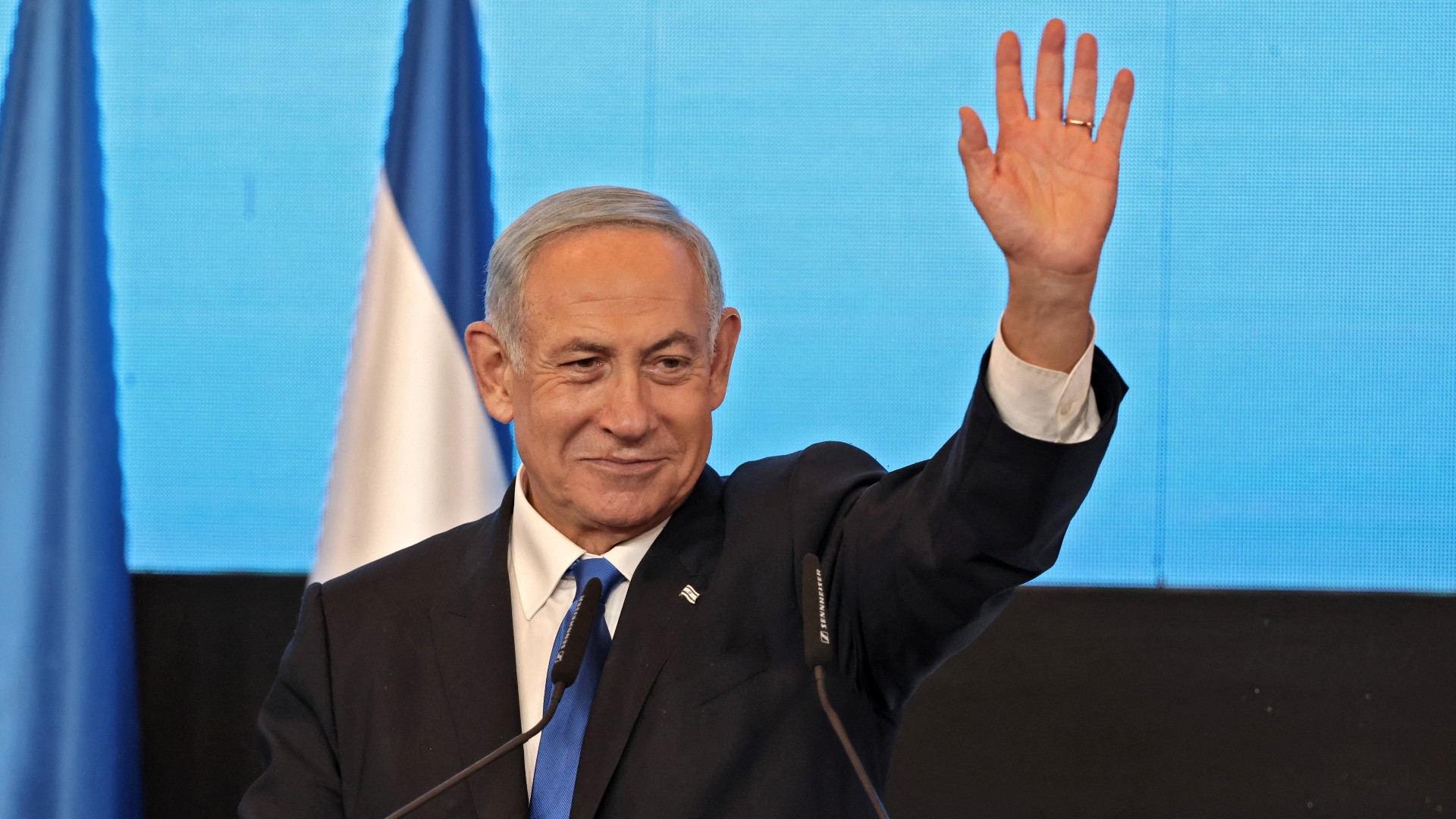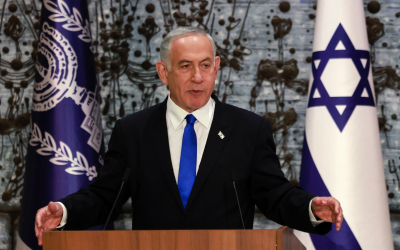Israel's Netanyahu plans to visit UAE as early as next week

Israel's Prime Minister Benjamin Netanyahu is planning an official visit to the United Arab Emirates for his first foreign trip as leader of the country's new government, the prime minister's office said in a statement on Monday.
While details are still being worked out, Netanyahu could visit the UAE as early as next week, Israeli media reported.
UAE President Sheikh Mohamed bin Zayed Al Nahyan called Netanyahu on Saturday to congratulate him after his swearing-in ceremony. According to an Israeli readout of the call, the two leaders agreed that a visit by Netanyahu to the UAE would “take place soon”.
During his previous term in office, Netanyahu signed the US-backed Abraham Accords, which normalised relations between Israel, the UAE, Bahrain, Morocco, and Sudan.
While normalisation with Bahrain and Sudan has been slow, Israel’s ties with the UAE are flourishing. Israeli tourists have flocked to Dubai and the two countries signed a historic free trade deal last year.
Travelling to the UAE would be a symbolic victory for Netanyahu, who has billed himself as an indispensable statesman for Israel. Thanks to the support of the former Trump administration, he has been able to cut deals with Israel's Arab neighbours without having to cede ground on the conflict with Palestine.
Netanyahu has already stated that the expansion of settlements in the West Bank, deemed illegal under international law, is one of the main goals of his government.
Netanyahu’s attempt to visit the UAE in March 2021 was viewed by some as a ploy to take credit for Israel’s foreign policy achievements just days before elections that would remove Netanyahu from power. His trip was ultimately cancelled after Jordan delayed approving his flight path in retaliation for Israel cancelling the Jordanian crown prince’s trip to Al-Aqsa Mosque in Jerusalem.
Netanyahu has said he plans to make expanding the Abraham Accords a priority of his new government. However, analysts and former US officials warn that his dependence on far-right and religious zionist allies could hinder the pledge, particularly with Netanyahu's goal to normalise ties with Saudi Arabia.
Before last year’s elections, UAE Foreign Minister Abdullah bin Zayed reportedly warned Netanyahu against including far-right individuals in his government. Netanyahu ultimately named firebrand lawmakers Itamar Ben Gvir as national security minister and Bezalel Smotrich as finance minister.
In December, Ben-Gvir was hosted by the United Arab Emirates embassy in Tel Aviv for the UAE's 51st National Day event.
Also on Monday, Israel’s new Foreign Minister Eli Cohen said he planned to attend a March summit in Morocco with counterparts from Arab countries which normalised ties with Israel.
Last March, Israel hosted the Emirati, Bahraini, Moroccan, and Egyptian foreign ministers, along with the US secretary of state, for a similar event dubbed the "Negev Summit". A follow-up meeting has been widely anticipated.
Middle East Eye propose une couverture et une analyse indépendantes et incomparables du Moyen-Orient, de l’Afrique du Nord et d’autres régions du monde. Pour en savoir plus sur la reprise de ce contenu et les frais qui s’appliquent, veuillez remplir ce formulaire [en anglais]. Pour en savoir plus sur MEE, cliquez ici [en anglais].





